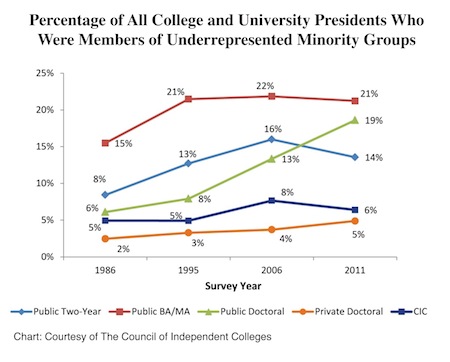 The Council of Independent Colleges (CIC) is a national association representing 640 small and mid-sized, liberal arts-oriented, nonprofit colleges and universities. It recently published a report entitled, A Study of Presidents of Independent Colleges and Universities.
The Council of Independent Colleges (CIC) is a national association representing 640 small and mid-sized, liberal arts-oriented, nonprofit colleges and universities. It recently published a report entitled, A Study of Presidents of Independent Colleges and Universities.
The survey found that only 6 percent of the presidents of member colleges were from underrepresented minority groups. In contrast, 19 percent of state-operated doctoral institutions had a president that was a member of a minority group. And 21 percent of public institutions that do not offer doctoral degree programs had minority presidents.
Furthermore, the percentage of minority presidents at CIC colleges and universities dropped from 8 percent in 2006 to 6 percent in the latest survey.








